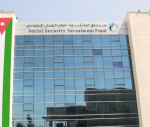You are here
To defeat Daesh
Apr 21,2015 - Last updated at Apr 21,2015
In his television interview with Fox News on April 13, King Abdullah revealed that Jordan is now the only Arab member of the US-led international coalition that is bombing Daesh in Iraq and Syria.
He said that the UAE and Bahrain withdrew their fighter jets from bases in Jordan to join the “Operation Storm of Resolve” in Yemen.
This is a setback to the King’s effort to build an Arab-Muslim coalition to fight Islamist radicals who pose an existential threat to most countries in the region.
That fight must remain a priority for the region.
Daesh and its affiliates are active in Sinai, Libya, the Horn of Africa, Pakistan, Afghanistan, in addition to Iraq and Syria. Even in war-torn Yemen, Al Qaeda has recaptured areas in the past few weeks, especially in Hadramaut, and there are concerns that tribes fearing Houthi expansion might ally themselves with the jihadist salafist group on sectarian basis.
One of the objectives of the proposed joint Arab force, which was approved at last month’s Arab summit in Sharm El Sheikh, must be to consolidate efforts to fight Daesh, which is posing a major threat to regional security and stability.
King Abdullah has said time and again that standing up to those who have hijacked Islam must be the responsibility of Arabs and Muslims.
But defeating Islamist militants will require much more than air strikes.
In Iraq, the army, the militias, the Peshmerga and the local tribes have changed the balance of power on the ground. Assisted by the coalition air force, they managed to recapture Tikrit and the strategic oil refinery in Beiji, and are finally making headway in the long and difficult campaign to liberate Al Anbar.
Only with ground troops will the Iraqis be able to dislodge Daesh from areas under its control. The biggest test will be in Mosul later this year.
In Syria, it is a different story. There is currently more than one battlefront in this beleaguered country; one is the war against the Damascus regime and the other is the international coalition’s air strikes against Daesh.
But there is also fighting between rebel groups themselves over territory.
Despite recent gains by the Free Syrian Army (FSA) and Jabhat Al Nusra in the south and north of the country, Daesh is still in control of large swathes of territory.
The regime has avoided confrontation with Daesh, which recently occupied most of Yarmouk refugee camp in the heart of Damascus.
Even if Daesh is eventually defeated in Iraq, it will be difficult to dislodge it from Syria without ground troops.
The joint Arab force will have to draw up a plan to face Islamist militants in Syria by recruiting and training Syrians to do the job.
Unless the threat of Daesh in Syria is checked, it will continue to be a destabilising force affecting Jordan, Iraq, Lebanon and Syria.
The war on Islamist extremists must become the centre of Arab strategic approach. That war will take many shapes and will be long and costly for all. But Arab and Muslim countries must take the lead in that war so as not to portray the campaign as a new crusade by the West against Islam.
It is imperative that more Arab countries join the coalition fighting Daesh, the campaign in Yemen notwithstanding.
The Saudi-led air strikes against the Houthis and rebel troops belonging to former president Saleh will eventually lead to a political solution in Yemen. This has become the conviction of all those involved in the conflict.
But the war against Daesh has no political horizon. It is a war between moderation and extremism, an ideological clash with no middle ground.
It is a war that will determine the future of the region and the fate of millions of people.
The military option is an essential and immediate part of a long-term solution to this existential challenge. But it must be accompanied by an intellectual campaign to prevent younger generations of Muslims from falling into the tentacles of extremists with their skewed view of life.
It will mean that Arab countries must work together to bring hope to their citizens. The reservoir from which Daesh and others get their volunteers must be drained. The social incubators for extremists in our societies must be dismantled.
Once more, the Arab-Muslim coalition fighting Islamist militants must take form and must become a strategic priority.
For now, the military option takes precedence and must be demonstrated in Iraq and Syria.
More battles will be fought in Libya and the rest of Africa. Daesh and its affiliates must be defeated on the ground and that requires an effective coalition.
The writer is a journalist and political commentator based in Amman.













